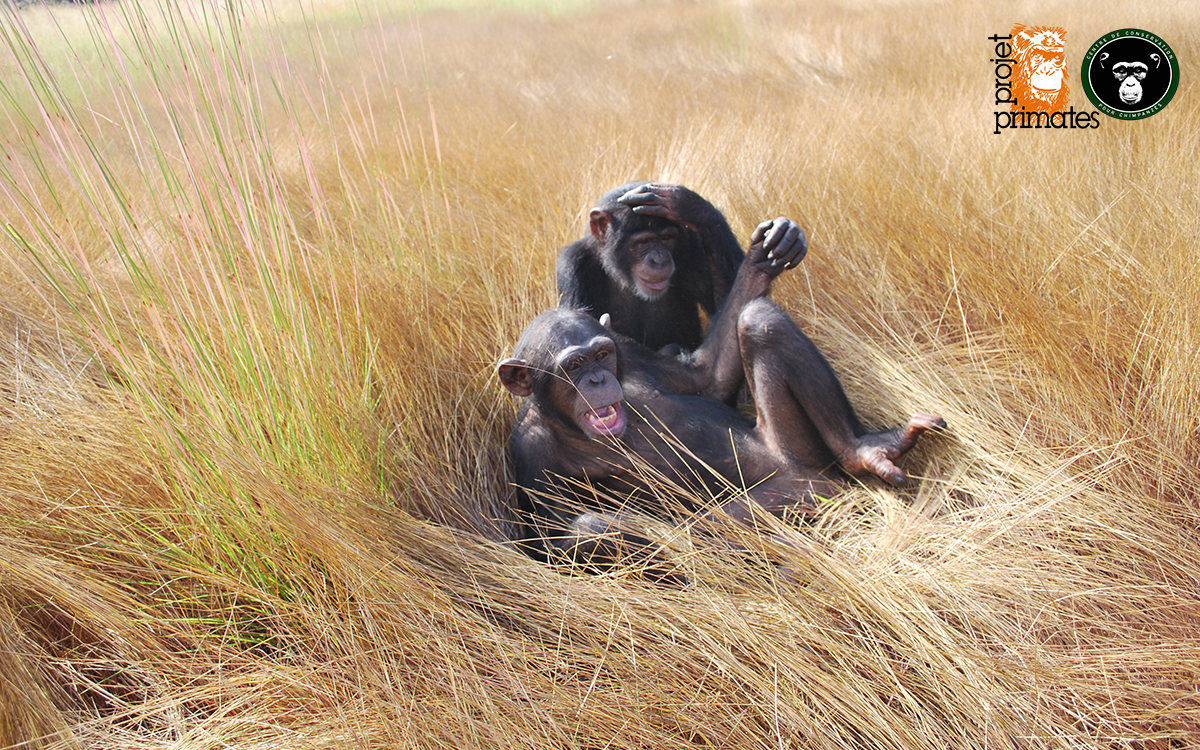
Au Centre de Conservation pour Chimpanzés de Guinée, nos plus proches cousins reprennent vie
Le Centre de Conservation pour Chimpanzés de Guinée prend soin des primates issus du trafic. Il panse leurs traumatismes et les rend à la vie sauvage, une fois prêts.
Nous venons de nouer un partenariat avec l’association Projet Primates France, en soutien au Centre de Conservation pour Chimpanzés (CCC) en République de Guinée. Nous nous réjouissons de contribuer ainsi directement à la réhabilitation de nos plus proches cousins dans leur environnement naturel. À travers ce programme, nous participons aussi à la protection de nombreuses autres espèces, à la lutte contre la déforestation et à la formation des populations locales.
Situé à 400 kilomètres de Conakry, la capitale du pays, éloigné de toute route et de tout village, le Centre de Conservation pour Chimpanzés (CCC) en République de Guinée est isolé du monde extérieur. En pleine forêt. Au plus près des animaux.
Rescapés du trafic
C’est ici que près de cent chimpanzés, orphelins, bébés, jeunes ou adultes, ont été recueillis depuis la création du centre il y a vingt ans. Des chimpanzés en grande détresse physique et psychologique, issus du trafic et vendus comme animaux de compagnie. Les soixante-quatre pensionnaires actuels ont, pour la plupart, connu les mêmes drames : leur mère et d’autres membres de leur groupe ont été assassinés sous leurs yeux alors qu’ils étaient petits. Ensuite, ils ont été capturés, arrachés à leur forêt natale et condamnés à la captivité.
Sanctuaire d’accueil
Travaillant de concert avec les autorités lors des saisies, le Centre de Conservation pour Chimpanzés s’est fixé la mission d’offrir un havre de paix et une nouvelle perspective d’avenir à ces malheureux singes. Nombre d’entre eux se trouvent dans un état pitoyable à leur arrivée. Certains souffrent souvent d’affections très graves, notamment en raison de maladies qu’ils ont contractées au contact des humains et contre lesquelles leur système immunitaire n’est pas capable de se défendre. Ils sont alors placés en quarantaine de trois mois pour recevoir des soins et une prise en charge psychologique. Afin d’aider chaque orphelin à dépasser ses traumatismes, une « maman de substitution » humaine le prend en charge 24 h/24. C’est avec elle qu’il retourne faire ses premiers pas dans la forêt et tester ses compétences. Au terme de la quarantaine, il est intégré à un groupe de congénères et sort avec eux dans la brousse tous les jours, accompagné de deux membres du personnel.
Réhabilitation
Mais le Centre n’est pas seulement un refuge. Son but est de favoriser également le retour à la vie sauvage des chimpanzés suffisamment aptes. Un projet de longue haleine où, pendant une douzaine d’années, les plus jeunes singes sont amenés à recevoir l’enseignement de leurs aînés tout en se détachant progressivement des humains. À cette « école de la forêt », ils apprennent aussi bien à communiquer entre eux qu’à tisser des relations sociales, rechercher de la nourriture, utiliser des outils, chasser, se méfier des dangers…
Relâchés
À ce jour, dix-sept chimpanzés ont déjà été relâchés dans le parc national du Haut-Niger sur un territoire de 50 km2. L’endroit est reconnu comme un haut-lieu de conservation de ces singes en voie de disparition à l’échelle mondiale. Quelle victoire que d’observer ces êtres arrachés à un destin tragique, retrouver progressivement confiance et autonomie, et parvenir à s’intégrer à des groupes de chimpanzés sauvages…
Unité des combats
Nous sommes heureux et fiers de participer au travail remarquable du CCC à travers notre partenariat avec l’association Projet Primates France. Au-delà de cette aide apportée à des singes dans la souffrance et à leur réhabilitation, ce programme représente aussi une formidable lutte contre la déforestation, contre la mort de nombreux autres animaux (notamment les pangolins qui partagent le même habitat) et pour la sensibilisation des populations locales appelées à s’investir. Animaux humains et non humains, planète… même combat !